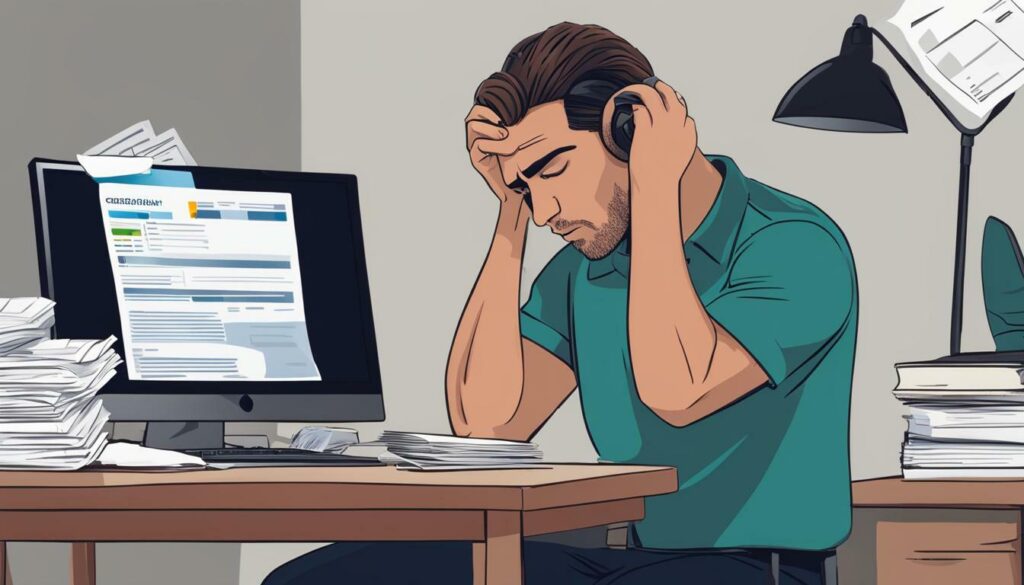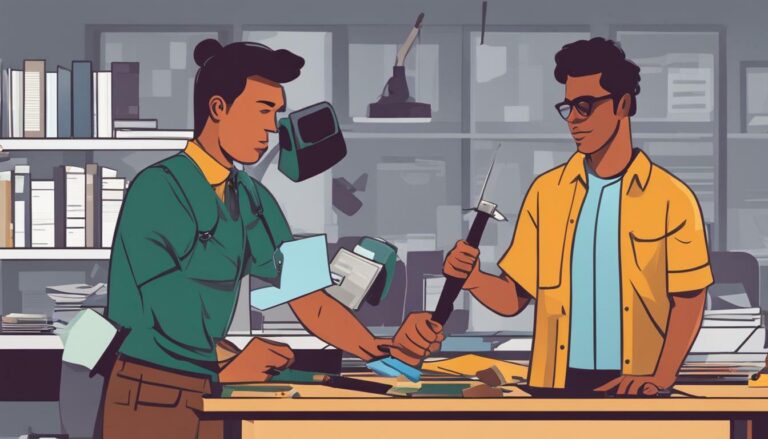DIY vs. Professional Credit Repair Services: Which is Right for You?

Credit repair is a critical step towards improving your financial standing, but deciding between DIY or professional credit repair services requires careful consideration. DIY credit repair involves obtaining credit reports, reviewing them for errors, and disputing any inaccuracies. It also requires paying bills on time, managing credit utilization, and applying for new credit cards strategically. On the other hand, professional credit repair services handle everything from reviewing credit reports to negotiating settlements and disputing negative items. They are well-versed in credit laws and regulations and can provide expertise and guidance throughout the process.
- DIY credit repair allows for cost savings and a deeper understanding of credit management.
- Professional credit repair services save time and leverage expertise to achieve better results.
- Consider factors such as available time, financial situation, knowledge of credit laws, and emotional readiness when deciding between DIY and professional credit repair.
- Both approaches require time, patience, and commitment to improve and maintain good credit.
- Be cautious of scams or ineffective services when opting for professional credit repair.
Understanding DIY Credit Repair
DIY credit repair puts you in the driver’s seat, allowing you to take control of your financial situation by following a series of essential steps. It begins with obtaining your credit reports from the three major credit bureaus: Equifax, Experian, and TransUnion. You can request a free copy of each report once every 12 months from AnnualCreditReport.com, the official site mandated by the federal government.
Once you have your credit reports in hand, review them carefully for any errors or discrepancies. Look for items such as incorrect personal information, outdated accounts, or negative marks that shouldn’t be there. Keep a record of any errors you find, as well as any supporting documentation. This information will be crucial when it’s time to dispute inaccuracies.
When disputing errors on your credit reports, it’s important to be detailed and thorough. Write a letter to the credit bureau that issued the report, explaining the specific mistake, providing evidence to support your claim, and requesting its removal. You can find templates and sample dispute letters online to help guide you through the process. Remember to send your dispute letters by certified mail with a return receipt. This will provide proof that your dispute was received and give you a paper trail to refer back to if needed.
| Credit Repair Tips | Credit Repair Strategies | Credit Repair Techniques |
|---|---|---|
| Pay your bills on time | Manage your credit utilization | Apply for new credit cards strategically |
| Review your credit reports regularly | Dispute any errors or inaccuracies | Negotiate with creditors for settlements |
| Be cautious of credit repair scams | Understand your rights under the Fair Credit Reporting Act | Monitor your credit score and take steps to improve it |
Remember, DIY credit repair requires time, effort, and a good understanding of credit laws. While it can be a cost-effective option, it’s important to weigh the benefits against the challenges. If you’re confident in your ability to navigate the credit repair process and are willing to invest the necessary time and energy, DIY credit repair can be a viable choice. However, if you prefer to leave the complexities to the professionals or lack the time and resources to handle it yourself, consider hiring a reputable credit repair service.
🚨 TUIC Errors + Low Credit Score?
CreditScoreIQ helps you build credit faster by reporting utility bills to all 3 bureaus—while you dispute errors.
Start Building Credit Today →
The Benefits and Challenges of DIY Credit Repair
Opting for DIY credit repair offers several benefits, but it also comes with its fair share of challenges that need to be considered. One of the primary advantages is the potential for cost savings. By handling the credit repair process yourself, you can avoid paying fees associated with professional credit repair services. This allows you to allocate your financial resources towards other aspects of your financial well-being.
Another benefit of DIY credit repair is the opportunity to gain a deeper understanding of credit management. By delving into the process yourself, you can educate yourself about credit reports, credit scores, and how to improve them. This knowledge can empower you to make informed decisions regarding your finances in the future.
However, it is important to acknowledge the challenges that come with DIY credit repair. One of the main challenges is the time-consuming nature of the process. Repairing your credit requires thorough research, organizing documentation, and following up with creditors and credit bureaus. It can be a lengthy and tedious process that demands time and effort on your part.
Additionally, DIY credit repair requires a comprehensive understanding of credit laws and regulations. You need to familiarize yourself with the Fair Credit Reporting Act (FCRA), Fair Debt Collection Practices Act (FDCPA), and other relevant legislation to effectively navigate through the process. Misinterpreting or misunderstanding these laws can potentially hinder your progress and create further complications.
| The Benefits of DIY Credit Repair | The Challenges of DIY Credit Repair |
|---|---|
|
|

Ultimately, the decision between DIY and professional credit repair depends on your individual circumstances and preferences. It is important to evaluate your available time, financial situation, knowledge of credit laws, and emotional readiness before making a choice. Regardless of the approach you choose, improving and maintaining good credit requires time, patience, and commitment.
Professional Credit Repair Services: An Overview
Professional credit repair services provide comprehensive assistance by enlisting the help of experienced companies and specialists who are well-versed in credit repair processes. These services offer a range of benefits to individuals seeking to improve their credit scores and financial stability.
One of the key advantages of professional credit repair services is the expertise they bring to the table. Credit repair companies and specialists have an in-depth understanding of credit laws and regulations, allowing them to navigate the complexities of credit repair with ease. They can review credit reports, identify errors and inaccuracies, and dispute negative items on behalf of their clients.
In addition to their knowledge, professional credit repair services also possess strong negotiation skills. They can communicate effectively with creditors and collection agencies, advocating for their clients’ rights and working towards favorable settlements. By leveraging their experience and expertise, these services can often achieve better results than individuals attempting to repair their credit on their own.
It is important to note that professional credit repair services come with associated costs. While the fees charged by these services can vary, they are typically affordable and often outweighed by the benefits gained. However, it is essential to be cautious of scams or ineffective services. Researching and selecting reputable credit repair companies is crucial to ensure that individuals are receiving the assistance they need from trustworthy professionals.

In summary, professional credit repair services provide individuals with comprehensive assistance in repairing their credit. With their expertise, negotiation skills, and knowledge of credit laws, these services can effectively navigate the credit repair process on behalf of their clients. While there are associated costs, the benefits gained often outweigh the expense. However, it is crucial to choose reputable credit repair companies to ensure individuals receive the assistance they need to achieve their financial goals.
The Advantages and Considerations of Professional Credit Repair
While professional credit repair services offer numerous advantages, there are important factors to consider before making a decision.
One of the main advantages of opting for professional credit repair services is the time-saving aspect. Credit repair can be a complex and time-consuming process, requiring extensive research, paperwork, and follow-ups. By hiring a professional credit repair company, you can save valuable time and energy that can be devoted to other important aspects of your life.
Another advantage of professional credit repair services is the expertise and negotiation skills that professionals bring to the table. Credit repair specialists have in-depth knowledge of credit laws and regulations, allowing them to navigate the complex landscape of credit repair with ease. They can effectively negotiate with creditors and collection agencies on your behalf, increasing the chances of achieving successful outcomes.
However, it is crucial to consider the associated costs when deciding on professional credit repair services. While the monetary investment may be worthwhile for some individuals, it may not be feasible for others, especially those on a tight budget. Additionally, it is essential to be cautious of scams or ineffective services in the credit repair industry. Do thorough research, read reviews, and choose a reputable credit repair company to ensure you are getting value for your money.
| Advantages of Professional Credit Repair Services | Considerations for Professional Credit Repair Services |
|---|---|
| Time-saving aspect | Associated costs |
| Expertise and negotiation skills | Risk of scams or ineffective services |
Ultimately, the decision between DIY and professional credit repair services depends on your individual circumstances and preferences. Consider factors such as your available time, financial situation, knowledge of credit laws, and emotional readiness. Regardless of the chosen approach, it is important to remember that improving and maintaining good credit requires time, patience, and commitment.

Making the decision between DIY and professional credit repair depends on several factors that are unique to your circumstances and preferences. It’s essential to consider these factors before determining which option is right for you.
Table 1: Factors to Consider in Choosing Between DIY and Professional Credit Repair
| Factors | DIY Credit Repair | Professional Credit Repair |
|---|---|---|
| Time Availability | You have ample time to dedicate to the credit repair process. | You don’t have enough time to handle credit repair on your own. |
| Financial Situation | Your budget is limited, and you prefer to save money by doing it yourself. | You are willing to invest in professional help to ensure better and faster results. |
| Knowledge of Credit Laws | You have a good understanding of credit laws and regulations. | You lack the expertise and knowledge required to navigate credit laws effectively. |
| Emotional Readiness | You are prepared to handle the emotional toll that credit repair can bring. | You prefer to have a professional handle the process to alleviate stress and anxiety. |
By considering these factors, you can make an informed choice that aligns with your needs and goals. Remember that improving and maintaining good credit requires time, patience, and commitment, regardless of the approach you choose.

“Choose the option that aligns with your needs and goals, whether it’s taking control through DIY credit repair or seeking professional assistance for faster and more efficient results.”
List: Key Takeaways
- DIY credit repair involves obtaining credit reports, reviewing them for errors, disputing inaccuracies, and strategically managing credit.
- Professional credit repair services handle the entire process, leveraging expertise and negotiation skills to achieve better results.
- The decision depends on factors such as time availability, financial situation, knowledge of credit laws, and emotional readiness.
- Both options require commitment, patience, and understanding that credit repair is a long-term process.
The Importance of Time, Patience, and Commitment in Credit Repair
Regardless of whether you choose DIY or professional credit repair, time, patience, and commitment are crucial ingredients for success. Repairing your credit takes time, as it involves reviewing your credit reports, identifying errors, and disputing inaccuracies. It also requires patience because improvements in credit scores do not happen overnight. However, with dedication and commitment, you can gradually make significant progress in repairing your credit.
One of the key aspects of successful credit repair is consistently paying your bills on time. Late payments can negatively impact your credit score and make it more challenging to rebuild your credit. It’s essential to manage your finances responsibly, ensuring that bills are paid promptly to establish a positive payment history.
Another strategy to improve your credit is effectively managing your credit utilization. This refers to the ratio between your credit card balances and your credit limits. Keeping your credit utilization low, ideally below 30%, demonstrates responsible credit usage. It shows lenders that you are utilizing credit responsibly and can help improve your credit score over time.
| Credit Repair Tips | Credit Repair Strategies | Credit Repair Techniques |
|---|---|---|
| Pay bills on time | Monitor credit utilization | Dispute inaccuracies on credit reports |
| Reduce credit card balances | Set up automated payments | Negotiate with creditors for settlements |
| Establish a budget | Limit credit card applications | Seek advice from credit counseling agencies |
It’s important to remember that credit repair is a long-term process and requires dedication. Regardless of whether you choose the DIY or professional route, commit to following the necessary steps and implementing sound credit repair strategies. By doing so, you can rebuild your credit and open doors to better financial opportunities in the future.

When it comes to credit repair, choosing between DIY and professional credit repair services requires careful consideration, as the decision you make can shape your financial future. DIY credit repair allows individuals to take control of the process by obtaining credit reports, reviewing them for errors, and disputing any inaccuracies. It also involves managing credit utilization, paying bills on time, and strategically applying for new credit cards. On the other hand, professional credit repair services offer the expertise and knowledge of credit laws needed to handle all aspects of credit repair, including negotiating settlements and disputing negative items.
DIY credit repair provides the benefits of cost savings and the opportunity to gain a deeper understanding of credit management. It offers complete control and transparency over the process, allowing individuals to actively participate in improving their credit. However, it is important to consider that DIY credit repair can be time-consuming and emotionally taxing. It requires individuals to invest their time and effort into understanding credit laws and navigating the intricacies of the credit repair process.
Professional credit repair services, on the other hand, save time and leverage the expertise of credit repair companies and specialists. They handle the complex tasks involved in credit repair, such as reviewing credit reports, negotiating settlements, and disputing negative items. With their knowledge of credit laws and regulations, professionals can provide guidance and support throughout the process. However, it is crucial to be cautious of the associated costs and the risk of scams or ineffective services.
The decision between DIY and professional credit repair ultimately depends on individual circumstances and preferences. It is important to consider factors such as available time, financial situation, knowledge of credit laws, and emotional readiness. Regardless of the chosen approach, improving and maintaining good credit requires time, patience, and commitment. Consistent bill payments, managing credit utilization, and being strategic in applying for new credit are key elements of successful credit repair. By making an informed choice and dedicating yourself to the process, you can pave the way towards a better financial future.
FAQ
What are the options for credit repair?
Credit repair can be done through DIY credit repair services or professional credit repair services.
What does DIY credit repair involve?
DIY credit repair involves obtaining credit reports, reviewing them for errors, disputing inaccuracies, managing credit utilization, and strategically applying for new credit cards.
What are the benefits and challenges of DIY credit repair?
DIY credit repair offers cost savings, a deeper understanding of credit management, and complete control and transparency. However, it can be time-consuming, requires knowledge of credit laws, and can be emotionally taxing.
What is professional credit repair?
Professional credit repair services handle all aspects of credit repair, including reviewing credit reports, negotiating settlements, and disputing negative items. They have expertise and knowledge of credit laws.
What are the advantages and considerations of professional credit repair?
Professional credit repair services save time, leverage expertise for better results, and handle complex tasks. However, they come with a cost and the risk of scams or ineffective services.
How do I choose between DIY and professional credit repair?
Consider factors such as available time, financial situation, knowledge of credit laws, and emotional readiness to make the right choice. Both options require commitment, patience, and effort.
How important is time, patience, and commitment in credit repair?
Time, patience, and commitment are crucial in credit repair. Consistent bill payments, managing credit utilization, and strategic credit applications are essential for improving and maintaining good credit.
What is the importance of credit repair for financial stability?
Credit repair is vital for financial stability as it helps individuals achieve better credit scores, access favorable loan terms, and secure their financial future.
Ready to Improve Your Credit?
Disputing TUIC errors is step one. Step two? Boost your score by reporting utility payments with CreditScoreIQ.
Get Started Now (Only $1 Trial) →3-bureau reporting • $1M identity insurance • Dark web monitoring




